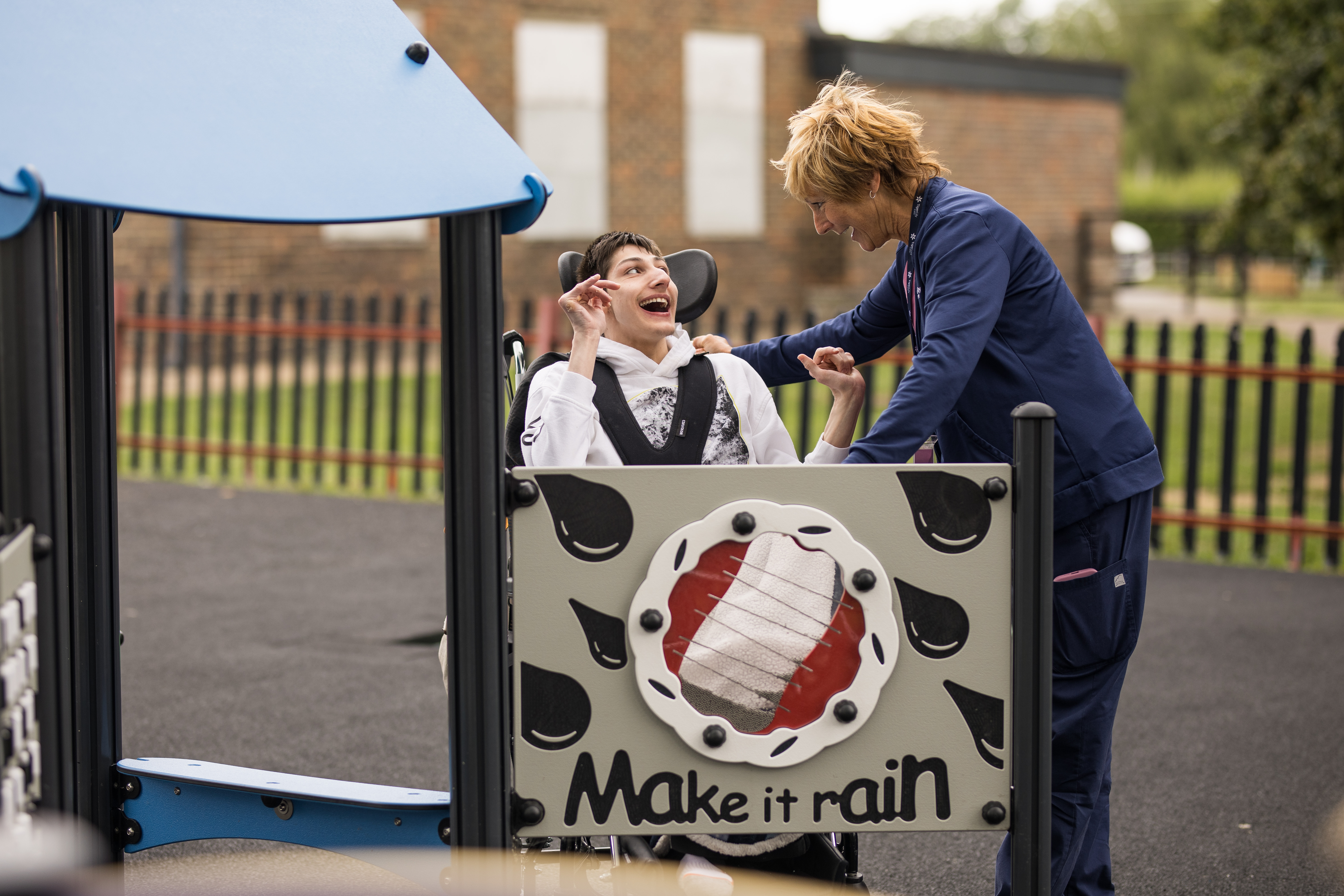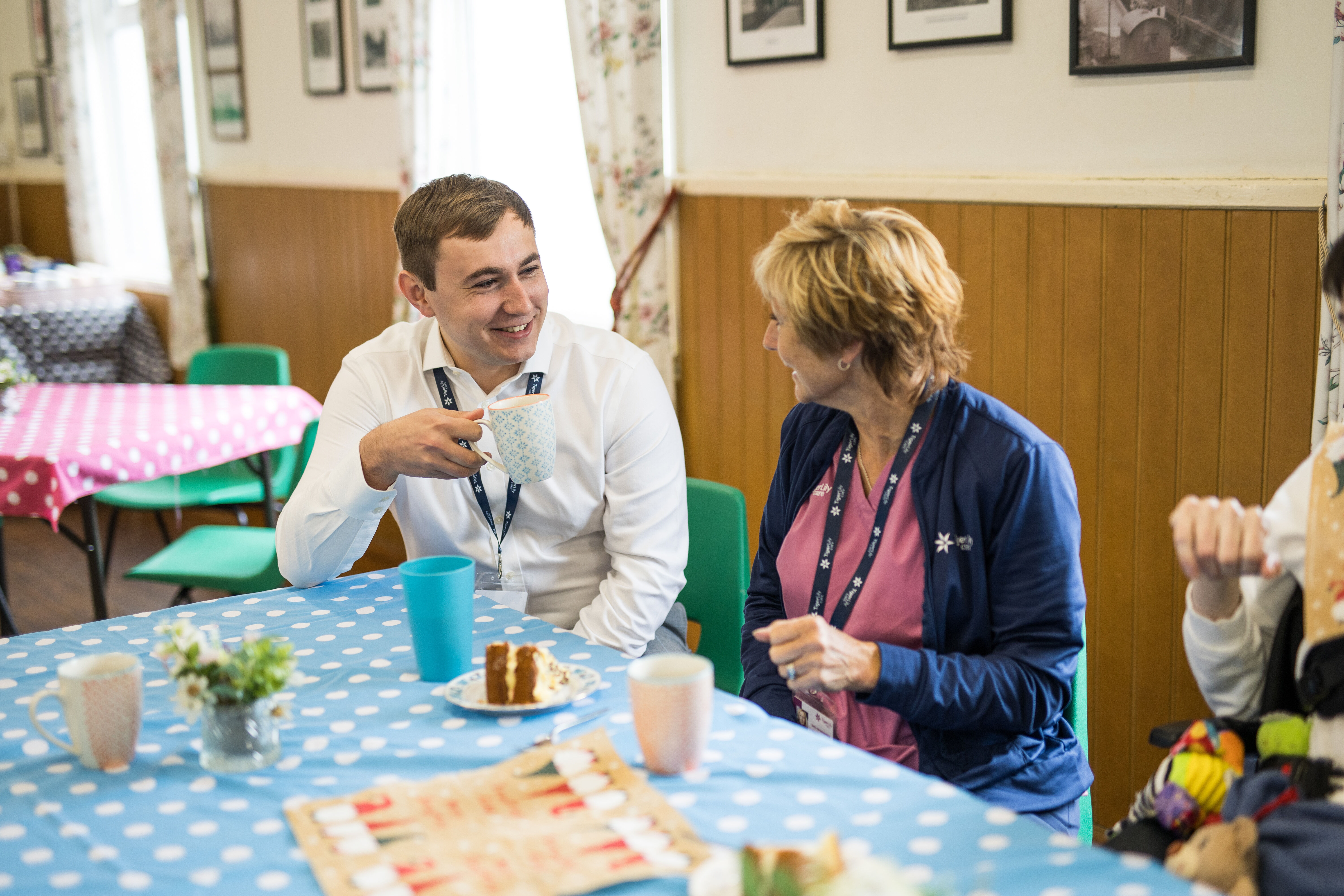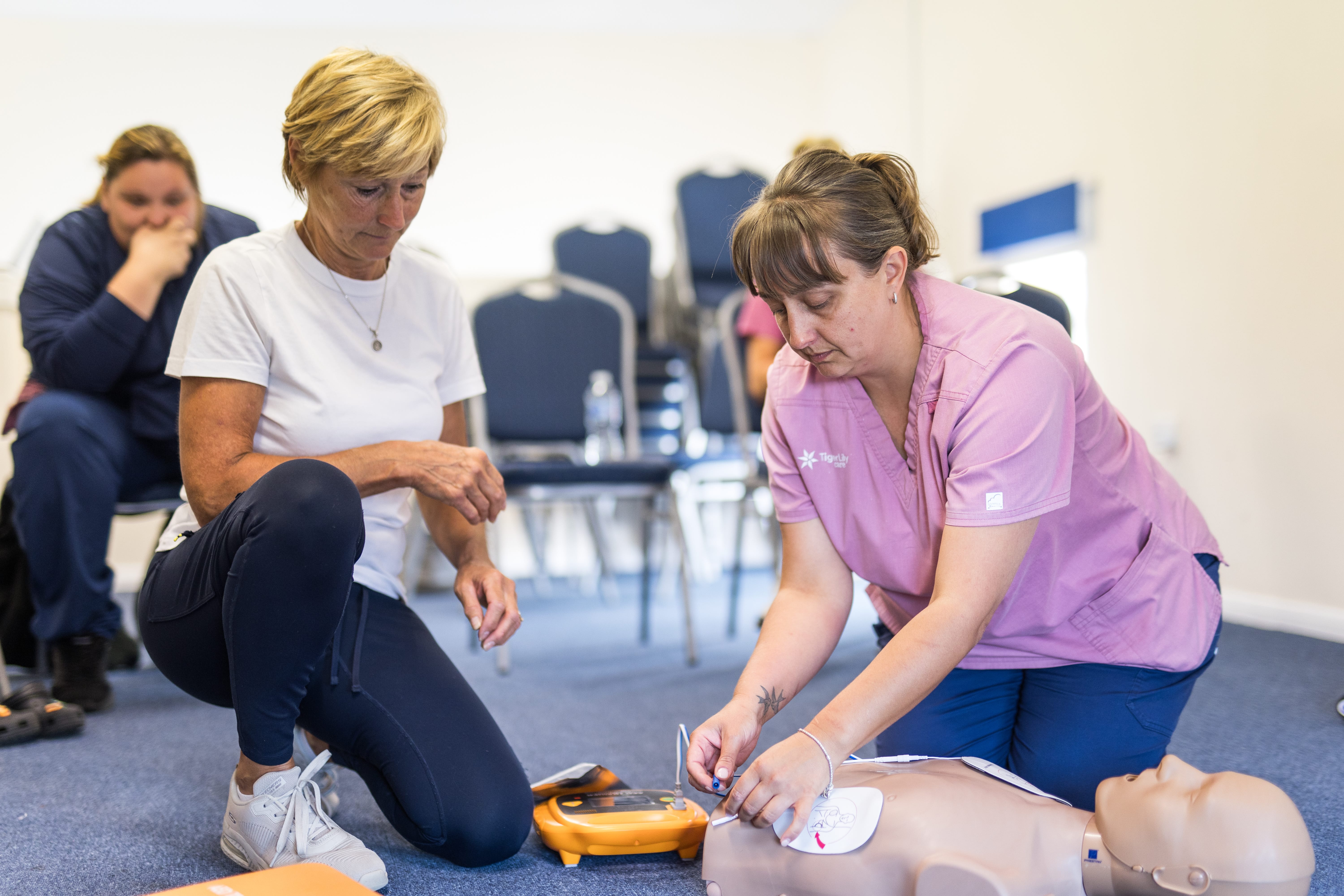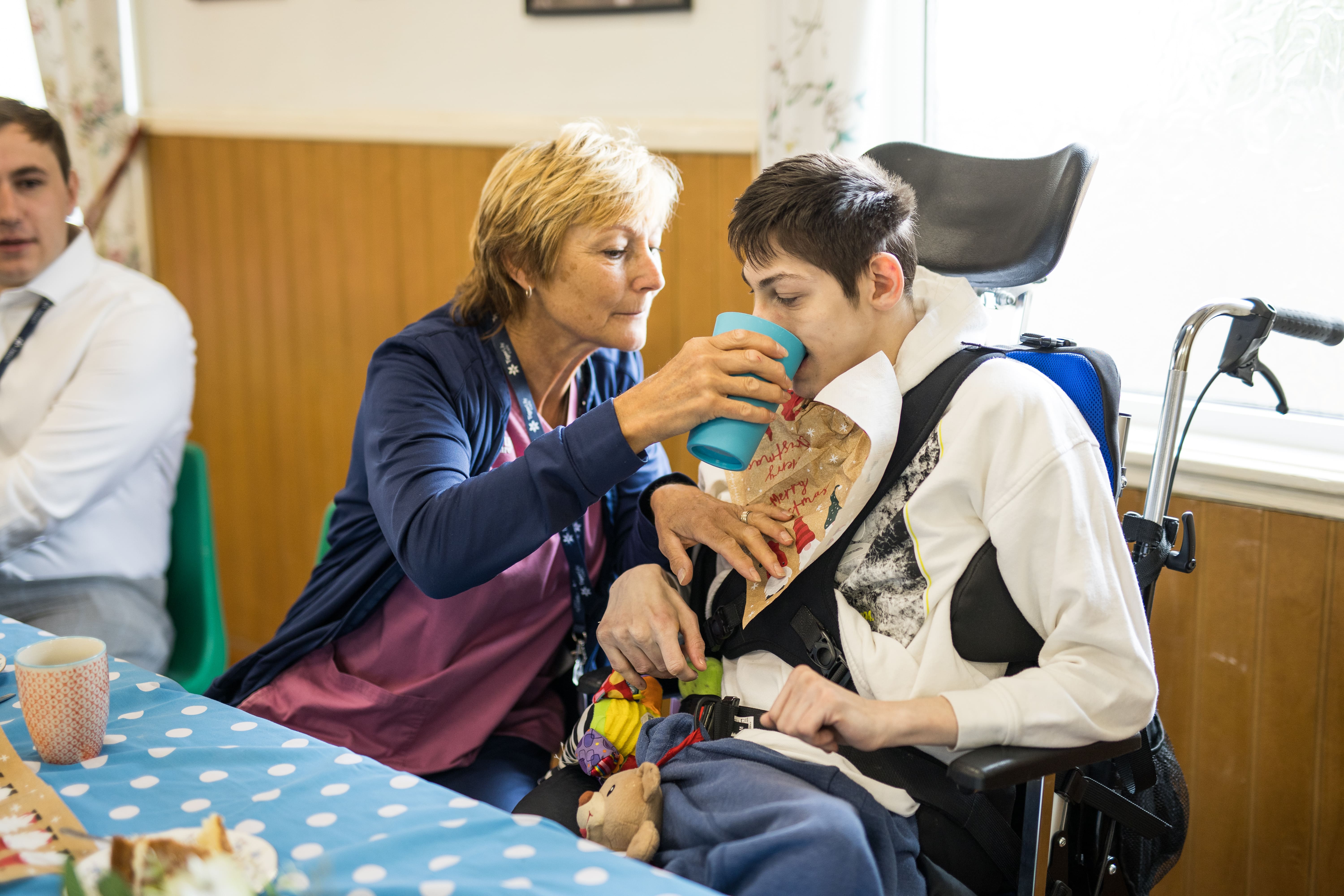People with dementia often worry about the impact that their diagnosis may have on their hobbies and interests. Moreover, social isolation and boredom can significantly impact a person’s quality of life. However, this doesn’t have to be the case!
In this blog, we explore some of our most beloved dementia-friendly activities and discover how they can be adapted to meet an individual’s unique functional needs.
Top Tips for Dementia Friendly Activities
When planning engaging activities to undertake with older persons with dementia, it can be helpful to keep these top tips in mind:
- Involve the older person - We all have preferences. It’s important to work with the person with dementia to discover activities that they are likely to enjoy. Try to learn about any hobbies or interests that they once found rewarding.
- Consider abilities and adaptations - Not every person with Alzheimer’s (or another form of dementia) has the same functional abilities. Seek to understand a person’s cognitive and physical skills as best you can so you can plan accordingly.
- Plan for variety- As the saying goes, variety is the spice of life! Add interest by trying new activities alongside familiar favourites.
- Maximise all aspects of health - Dementia isn’t just about memory. Plan activities that support all aspects of physical, mental, and social health.
- Be supportive- People with dementia can become confused and understandably frustrated when their symptoms impact their ability to engage in activities. Be patient, positive, and always willing to change plans as necessary.
#1 - Reminiscence
Reminiscence is the process of sharing memories. In dementia, the ability to form short-term memories is often impacted long before long-term memory is affected.
Reminiscence involves discussing past experiences and eliciting positive emotions associated with fond memories. However, people with Alzheimer’s dementia may struggle to access memories without support. Family members and carers can facilitate reminiscence by providing prompts alongside physical, visual, or audio materials. For example, a lively discussion about childhood friends could be sparked by viewing an old photo album.
Research has shown that reminiscing about positive memories can not only support cognitive health but also help to prevent depression and boost overall well-being.
Functional adaptations
Individuals who struggle with communication (for example, people with advanced-stage Alzheimer’s) can still derive benefits from reminiscence by hearing, viewing, or touching things likely to elicit positive memories.
#2 - Music
Music therapy is a well-established technique that has a wide range of benefits for the elderly. Playing music from a person’s youth can not only bring back happy memories, but research has shown that it has significant benefits for overall brain health.
Playing music is perfect for a rainy day or when someone isn't feeling well enough to engage in more physical activities.
For further support, the British Association of Music Therapy can help you find a qualified music therapist in your area.
Functional adaptations
People who are hard of hearing may benefit from adaptive devices to support their enjoyment of music. Alternatively, some forms of music therapy focus on the tactile and vibrational qualities of music.
#3 - Physical Activity
The key to maintaining good health as we age is to engage in regular light physical activity. Studies have repeatedly shown that physical, cognitive, and mental health can all be improved by keeping active. Some rewarding physical activities include:
- Going on walks
- Gardening
- Dancing
- Yoga and pilates
- Stretching and strength exercises
It's vital that all activities are safe and ability appropriate. If in doubt, seek advice from professional carers or the individual's GP.
Functional adaptations
Physical activity can be adapted to anyone's abilities! For example, these bed exercises can be beneficial for people who are unable to walk unsupported.
#4 - Art
Getting creative can exercise underutilised brain pathways. Simple activities, such as colouring or drawing, use a range of fine motor and thinking skills. Furthermore, the unrestricted nature of art can be a refreshing change for elderly individuals who may feel confined by the routine of daily life involving care.
Art can also be a highly social experience. Many local community groups offer opportunities to get creative with others. The British Association of Art Therapists have a list of qualified art therapists across the UK.
Functional adaptations
Art can very easily be tailored to each person's unique abilities. Using paint and sponges to print patterns can be an enjoyable activity for someone who struggles with the fine motor skills required for drawing.
#5 - Sensory Activities
Sensory stimulation has been shown to combat depression, support cognitive health, and trigger warm memories. Pleasant sounds, smells, and textures can be very relaxing for people with dementia. Furthermore, these activities are not only enjoyable, but they can help improve sensory processing skills that are often lost in conditions such as Alzheimer’s dementia.
A trip to a sensory garden can be a great way to get some fresh air, spend time with others, and support sensory development.
Functional adaptations
Sensory activities can be planned around any specific disabilities or needs. For example, individuals who have a visual impairment may enjoy the textures and smells of flowers during a flower arranging activity.
#6 - Cooking
Cooking involves using a variety of cognitive and physical skills. Plus, when you’re finished, you can enjoy some delicious home-cooked food!
There are many recipes online specifically designed for people with dementia, featuring clear, step-by-step instructions. Even preparing a simple fruit salad can be a rewarding experience that fosters a sense of achievement and independence.
Always remember to keep safety in mind when planning a cooking activity.
Functional Adaptations
For people who find it difficult to follow a series of instructions, they can still get involved with simple tasks that contribute to the overall recipe. For example, mixes can be stirred, or liquids may need to be measured.
#7 - Games and Puzzles
By definition, games are designed to be a source of enjoyment! There are many games out there created for solo or group fun, these include:
- Card games
- Dominoes
- Indoor bowling
- Jigsaw puzzles
- Games sold as 'dementia friendly'
It’s best to avoid overly complex board games that involve remembering several rules. Like any activity, always be willing to adapt and change when faced with obstacles that hinder enjoyment.
Functional adaptations
A person with dementia may appreciate teaming up with someone for reassurance and support. Alternatively, solo card games or puzzles may be less pressured than group competition.
#8 - Day Trips
We could all use some fresh air every now and then. A chance to stretch the legs, enrich the senses, and discover new things can be incredibly rewarding for someone with dementia.
Many community groups offer day or half-day excursions specifically designed for people with dementia and their carers. This offers a great opportunity for inclusive social interaction.
Functional adaptations
Some people with dementia can find trips to new places distressing. Try a short walk around your local area instead.
For older persons who need wheelchair or mobility aid support, many local attractions offer accessible ways to enjoy all they have to offer.
#9 - Movie Night
A night at the pictures can be an exciting way to bring variety to otherwise repetitive evenings. Classic films can bring back fond memories, and familiar plots can be easier to follow than the latest releases.
Try turning a simple movie into a fun social event. Involve friends and family, make some popcorn, and draw the curtains for a proper cinematic experience.
Functional adapatations
Ensure subtitles or audio description features are used as necessary. For people who struggle to maintain focus for long periods of time, consider playing a classic ‘short’ or two.
#10 - Gardening
Gardening is well regarded as one of the best activities for people with dementia. Spending time outdoors caring for plants can help individuals maintain their physical, cognitive, and psychological health. Gardening combines the best of several other activities, from sensory exploration to developing fine motor and creative skills.
Community gardens are a great way to make social connections and access gardening in an accessible way.
Functional adaptations
Many gardening activities can be too labour-intensive for the elderly. Indoor gardening and plant potting can be an excellent alternative for those who struggle with mobility.
Always remember...
People with dementia often struggle with isolation and boredom. Dementia-friendly activities are a great way to bring back those enjoyable moments while improving cognitive and physical skills that can be lost over time.
It’s important to consider each individual’s unique preferences and abilities when planning an activity. Make sure to work with the person with dementia to ensure activities are rewarding and enjoyable.
For further advice and support, reach out to our professional carers, who can guide you through the activities and adaptations most suitable for your loved one.








